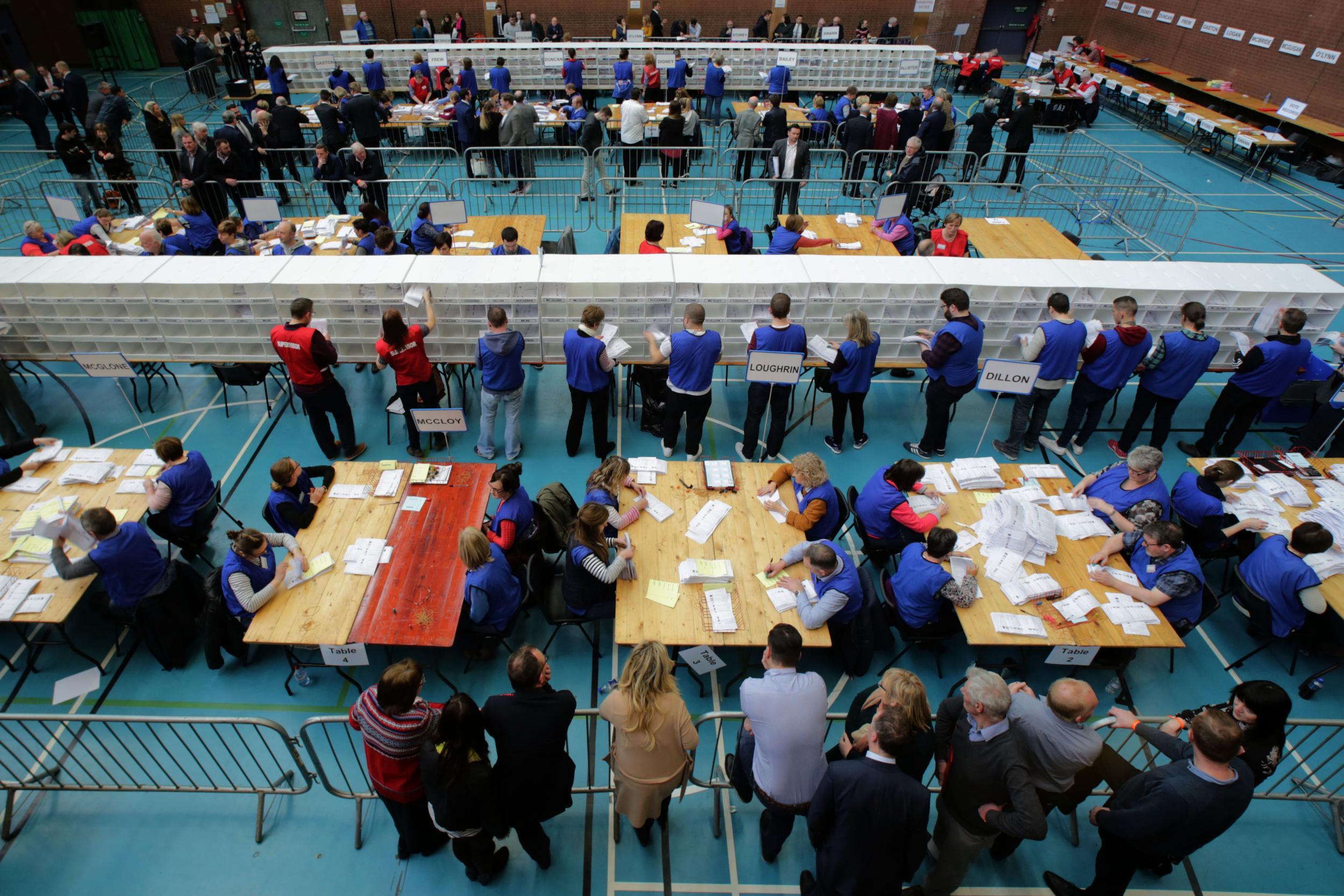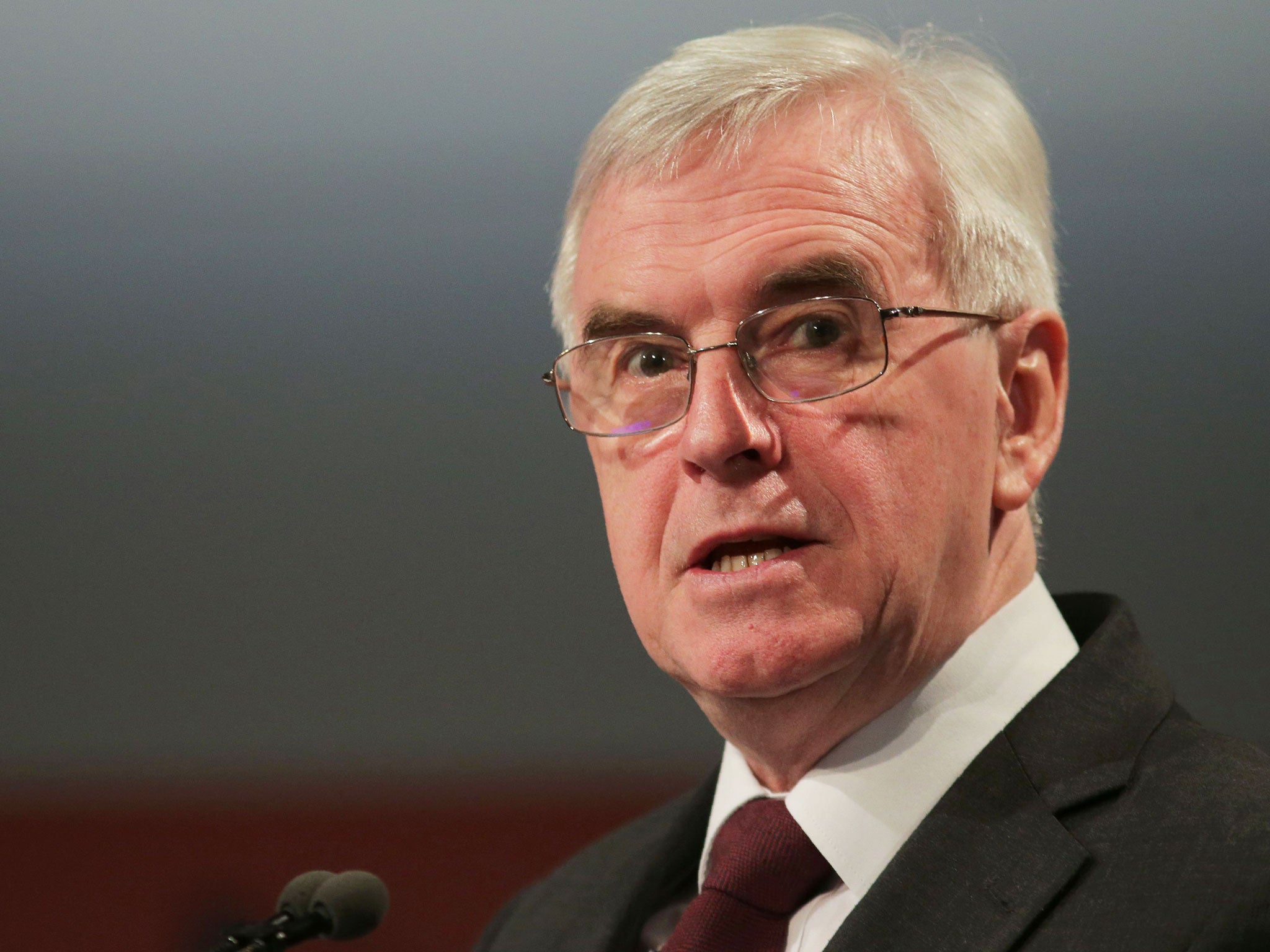Labour eyes proportional representation as party's elections minister backs voting shake-up
Shadow minister for elections backs the policy days before manifesto announcement

Your support helps us to tell the story
From reproductive rights to climate change to Big Tech, The Independent is on the ground when the story is developing. Whether it's investigating the financials of Elon Musk's pro-Trump PAC or producing our latest documentary, 'The A Word', which shines a light on the American women fighting for reproductive rights, we know how important it is to parse out the facts from the messaging.
At such a critical moment in US history, we need reporters on the ground. Your donation allows us to keep sending journalists to speak to both sides of the story.
The Independent is trusted by Americans across the entire political spectrum. And unlike many other quality news outlets, we choose not to lock Americans out of our reporting and analysis with paywalls. We believe quality journalism should be available to everyone, paid for by those who can afford it.
Your support makes all the difference.Labour looks set to back changing Britain’s voting system to proportional representation (PR) after a key shadow Cabinet ally of Jeremy Corbyn publicly endorsed the policy.
Frontbencher Cat Smith, who is responsible for her party’s policy on elections reform, put her name to a new report endorsing PR as a system used by “the kind of social democracies that we in the Labour Party want to create”.
The document also included a poll revealing more than three-quarters of Labour voters would back a promise to bring in PR – which has also been endorsed by shadow Chancellor John McDonnell.
The latest endorsement comes just days before the party is due to unveil its election manifesto and spell out its policies, though aides to leader Mr Corbyn have refused to confirm or deny support for PR, saying only: “Our policies will be laid out in the manifesto.”
Staunch Corbynite Ms Smith co-wrote the foreword to the report published by the Labour Campaign for Electoral Reform and Make Votes Matter in which she states that PR is “a prerequisite of a properly-functioning democracy”.
The manifesto’s content will be officially decided by the party’s “Clause V committee” over the next week and announced on 15 May. The committee is a meeting of the Shadow Cabinet, the parliamentary committee of the Parliamentary Labour Party and the chair and three vice chairs of the National Policy Forum.
The foreword signed by Ms Smith, the shadow elections minister, reads: “It is no exaggeration to say that in the 21st Century, proportional representation is a prerequisite of a properly-functioning democracy in which power, wealth and opportunity are in the hands of the many, not the few.”
“It once again falls to the Labour Party to play a crucial role in transforming the terms on which democracy is conducted by supporting this historic change. In doing so, Labour will find an electorate re-enfranchised.
“It will find activists and members across the country re-empowered to organise and use political power to shape a good society. We will find ourselves welcomed by allies, thanked by voters, and lauded by history.”
Other frontbenchers who have publicly backed PR include Richard Burden and Jonathan Reynolds. Former frontbenchers Chuka Umunna and Clive Lewis have also been outspoken on the issue, as has prominent backbencher Stephen Kinnock. Mr Corbyn himself has said he believes that “reform of the electoral system should be considered as part of a wider constitutional convention”, but has so far shied away from explicitly backing PR.

Labour last backed PR in 1997 when it pledged in its manifesto to set up an “independent commission on voting systems” to “recommend a proportional alternative to the first-past-the-post system”.
The resulting Jenkins Commission recommended changing to the “Alternative Vote Top-Up” PR voting system but its report was ignored and never implemented after opposition from senior figures in the Labour government. In 2010, Labour said it supported changing the voting system to Alternative Vote (AV), which is not proportional representation.
The Liberal Democrats, Green Party and Ukip have long supported PR, while views on the subject have traditionally been split within Labour. As one of the main two parties, Labour has generally benefited from FPTP, though opinion appears to have drifted in favour in recent years, with activists queuing around the block to hear about electoral reform at the party’s most recent conference.

If Labour does back PR the policy could be key to attracting tactical voters from the Lib Dems and Greens – who see themselves as being locked out of the political system by the current FPTP system.
Political parties get wildly different numbers of seats under FPTP for the same number of votes; at the last election Ukip’s 3.8 million votes won it just one seat, while the SNP won a seat for every 26,000 votes it took.
“Proportional representation” is the name for a family of different electoral systems that produce outcomes where seats won match up with the votes cast. The Scottish Parliament, Welsh Assembly and London Assembly use the “additional member system”, which drafts in extra MPs to make the overall result proportional. The Northern Ireland Assembly, meanwhile, uses the “single transferrable vote” system, which produces proportional results by using multi-member constituencies and preference voting.
The UK held a referendum on switching from FPTP to AV in 2011. AV, which is not a proportional voting system, was rejected by voters.
Join our commenting forum
Join thought-provoking conversations, follow other Independent readers and see their replies
Comments